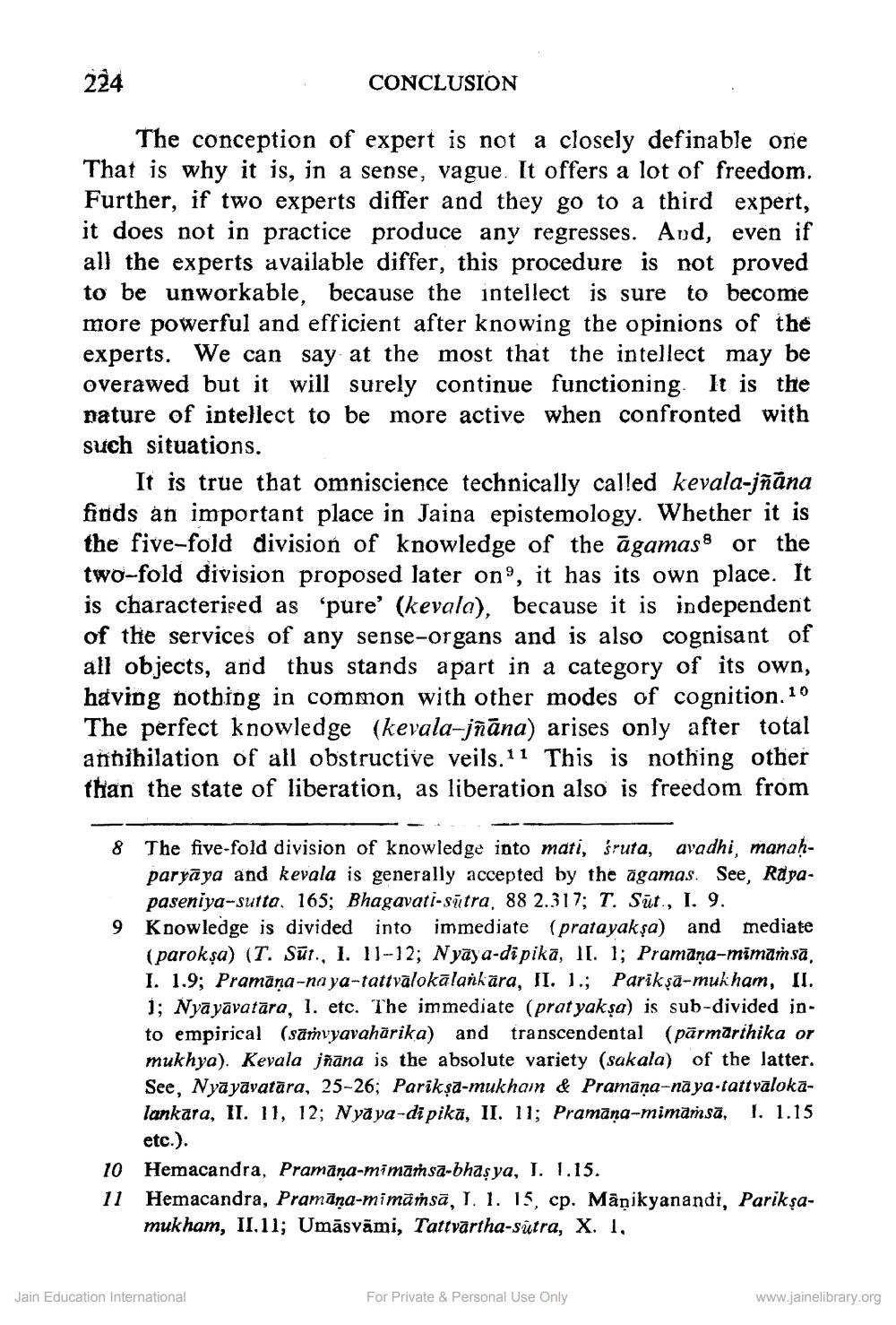________________
224
CONCLUSION
The conception of expert is not a closely definable one That is why it is, in a sense, vague. It offers a lot of freedom. Further, if two experts differ and they go to a third expert, it does not in practice produce any regresses. And, even if all the experts available differ, this procedure is not proved to be unworkable, because the intellect is sure to become more powerful and efficient after knowing the opinions of the experts. We can say at the most that the intellect may be overawed but it will surely continue functioning It is the nature of intellect to be more active when confronted with such situations.
It is true that omniscience technically called kevala-jñāna finds an important place in Jaina epistemology. Whether it is the five-fold division of knowledge of the agamas or the two-fold division proposed later on, it has its own place. It is characterised as 'pure' (kevala), because it is independent of the services of any sense-organs and is also cognisant of all objects, and thus stands apart in a category of its own, having nothing in common with other modes of cognition. 10 The perfect knowledge (kevala-jñāna) arises only after total annihilation of all obstructive veils.11 This is nothing other than the state of liberation, as liberation also is freedom from
8 The five-fold division of knowledge into mati, śruta, avadhi, manaḥparyaya and kevala is generally accepted by the agamas. See, Rayapaseniya-sutta. 165; Bhagavati-sutra, 88 2.317; T. Sut., I. 9.
9 Knowledge is divided into immediate (pratayakşa) and mediate (parokṣa) (T. Sūt., I. 11-12; Nyāya-dīpikā, II. 1; Pramana-mīmāṁsā, I. 1.9; Pramāṇa-naya-tattvālokālankāra, II. 1.; Parikṣā-mukham, II. 1; Nyāyāvatāra, 1. etc. The immediate (pratyakṣa) is sub-divided into empirical (sāṁvyavahārika) and transcendental (pārmārihika or mukhya). Kevala jñāna is the absolute variety (sakala) of the latter. See, Nyāyāvatāra, 25-26; Parikṣa-mukham & Pramāṇa-nāya-tattvalokalankara, II. 11, 12; Nyaya-dipikā, II. 11; Pramāṇa-mimāmsā, etc.).
Jain Education International
10 Hemacandra, Pramāṇa-mīmāṁsa-bhāṣya, I. 1.15.
11 Hemacandra, Pramana-mimämsä, I. 1. 15, cp. Manikyanandi, Parikşamukham, II.11; Umāsvāmi, Tattvartha-sutra, X. 1,
I. 1.15
For Private & Personal Use Only
www.jainelibrary.org




